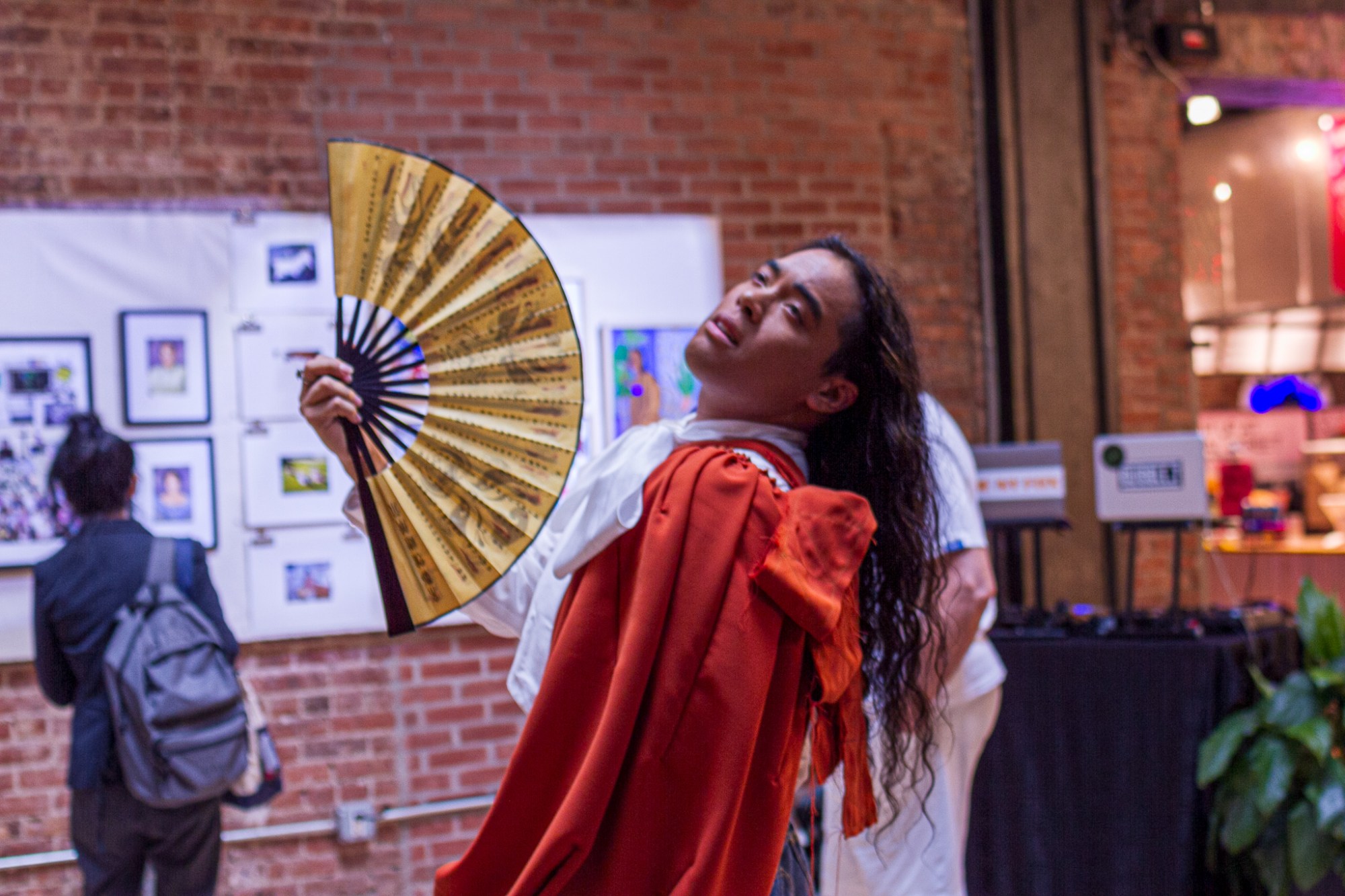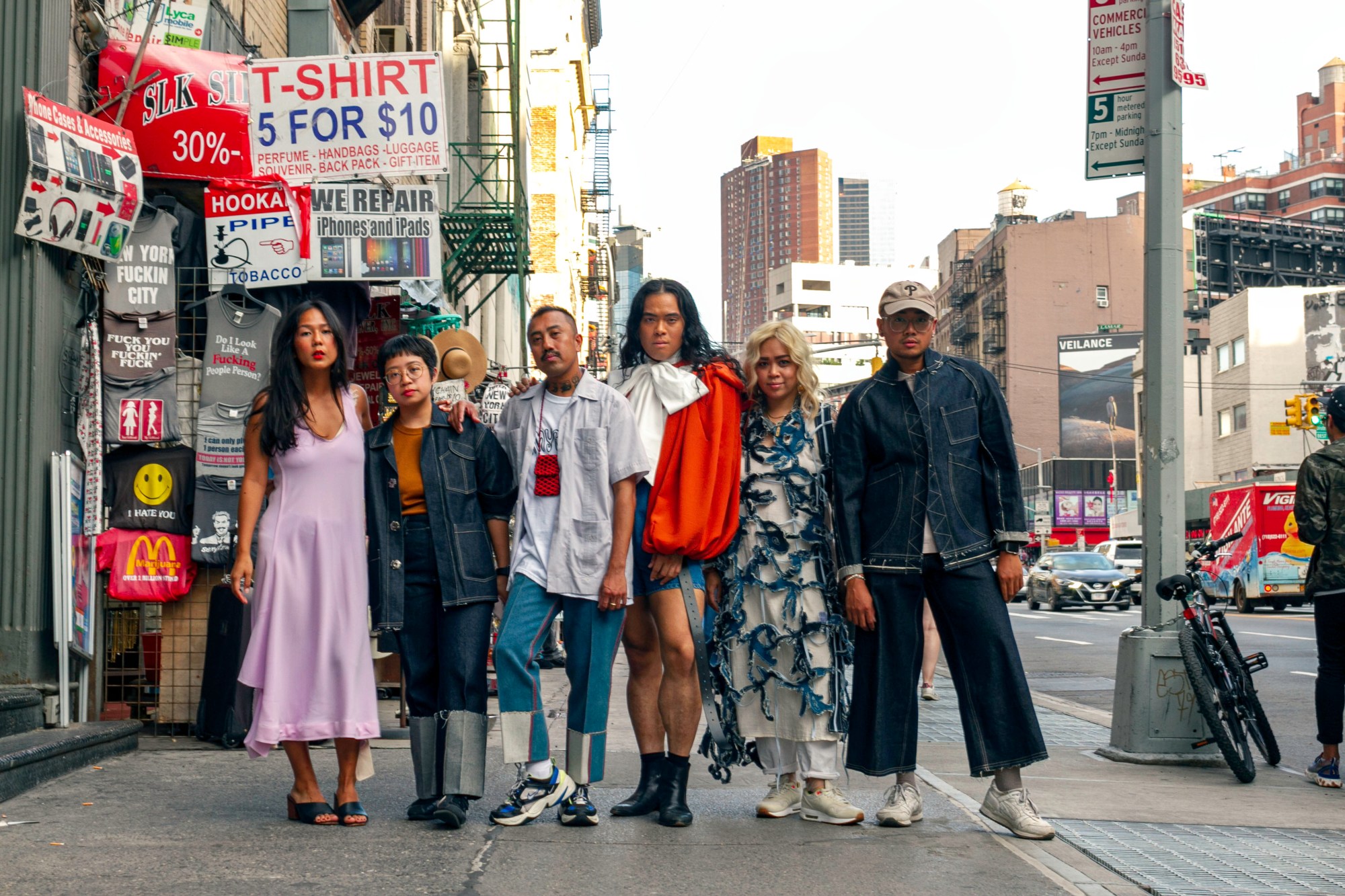“A sari-sari store is pretty much like a bodega,” explains Gabriella Mozo, co-founder of New York-based collective Sari-Sari General Store, at the opening night of KAPWA, a showcase of Filipino-American art in New York City.
In the Philippines, sari-sari stores are ubiquitous and mostly family-owned and operated. The Filipino-American collective of the same name was co-founded in 2018 by photographer Marielle Sales and artist Gabriella Mozo to bring those same community values to New York creatives of the Filipino diaspora. Beginning as a pop-up closet sale with about seven Filipino-Americans last year, Sales and Mozo realized that they could brand it into something more than a one-time pop-up, and so Sari-Sari General Store was born.
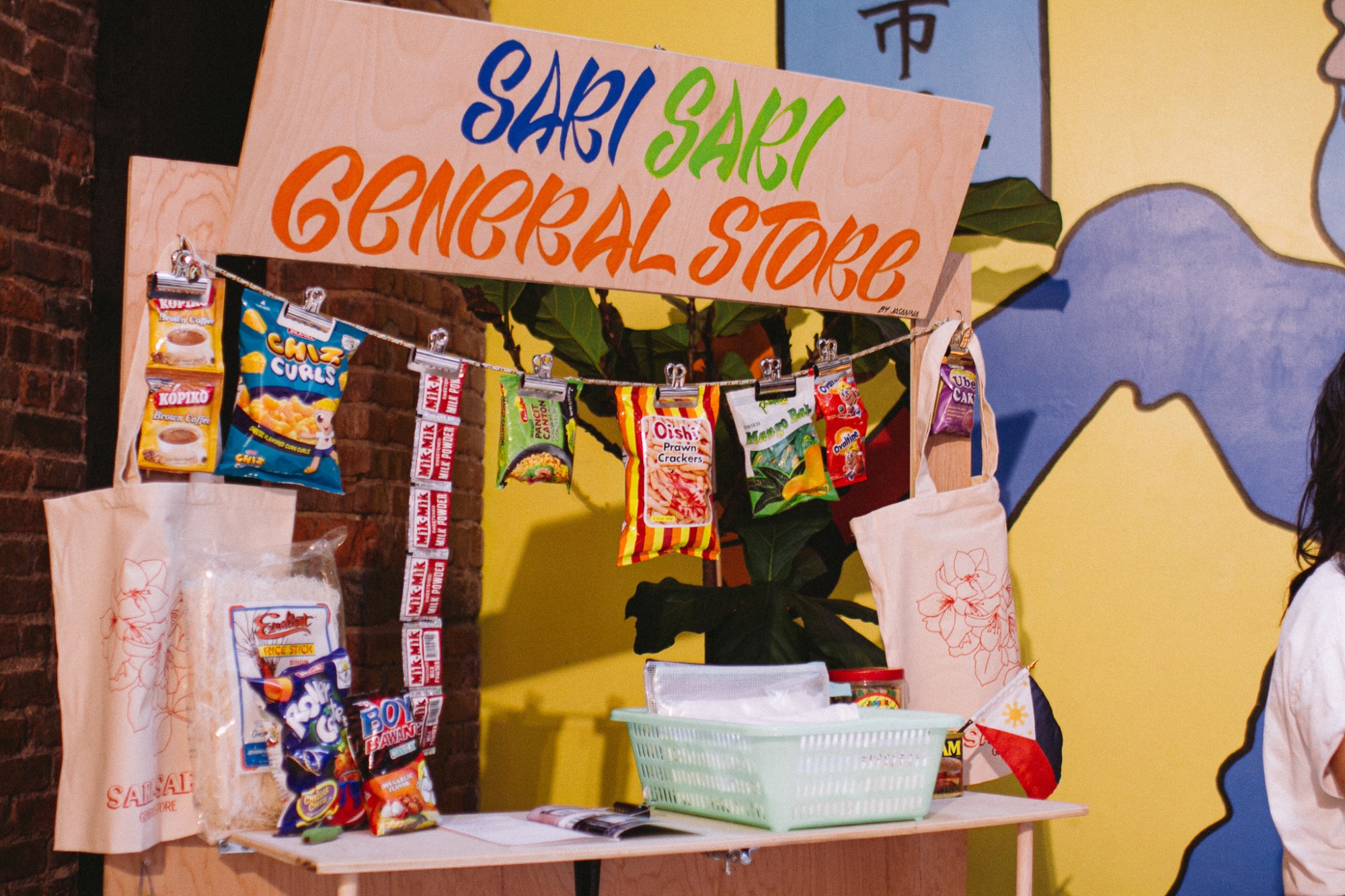
The collective’s intention is to foster connections and collaborations between Filipino-Americans, while simultaneously celebrating and exploring cultural identity. The duo credit their organic growth to the community. “We started doing events because people want it and we want that face-time with them,” says Sales. “Everything is digital now and it’s really hard to know who’s behind what.”
Although the chosen media of Sari-Sari is interactive pop-ups and events, they do rely on digital spaces like Instagram for outreach. KAPWA, which was on display at Canal Street Market from August 22-25, garnered a huge crowd on its opening night primarily because of Instagram flyers.
What they describe as an “innately Filipino word,” kapwa conveys a togetherness that Filipinos feel and exemplify in everyday life. The showcase, curated by Sales, was an inquiry into that togetherness. “It was always something we wanted to do because most of our friends work in the creative industry and I feel like we don’t always have a voice in it. KAPWA means what we’re trying to achieve with Sari-Sari.” Mozo adds, “We want to be able to distinguish our identity tangibly. We want to tell our own stories.”
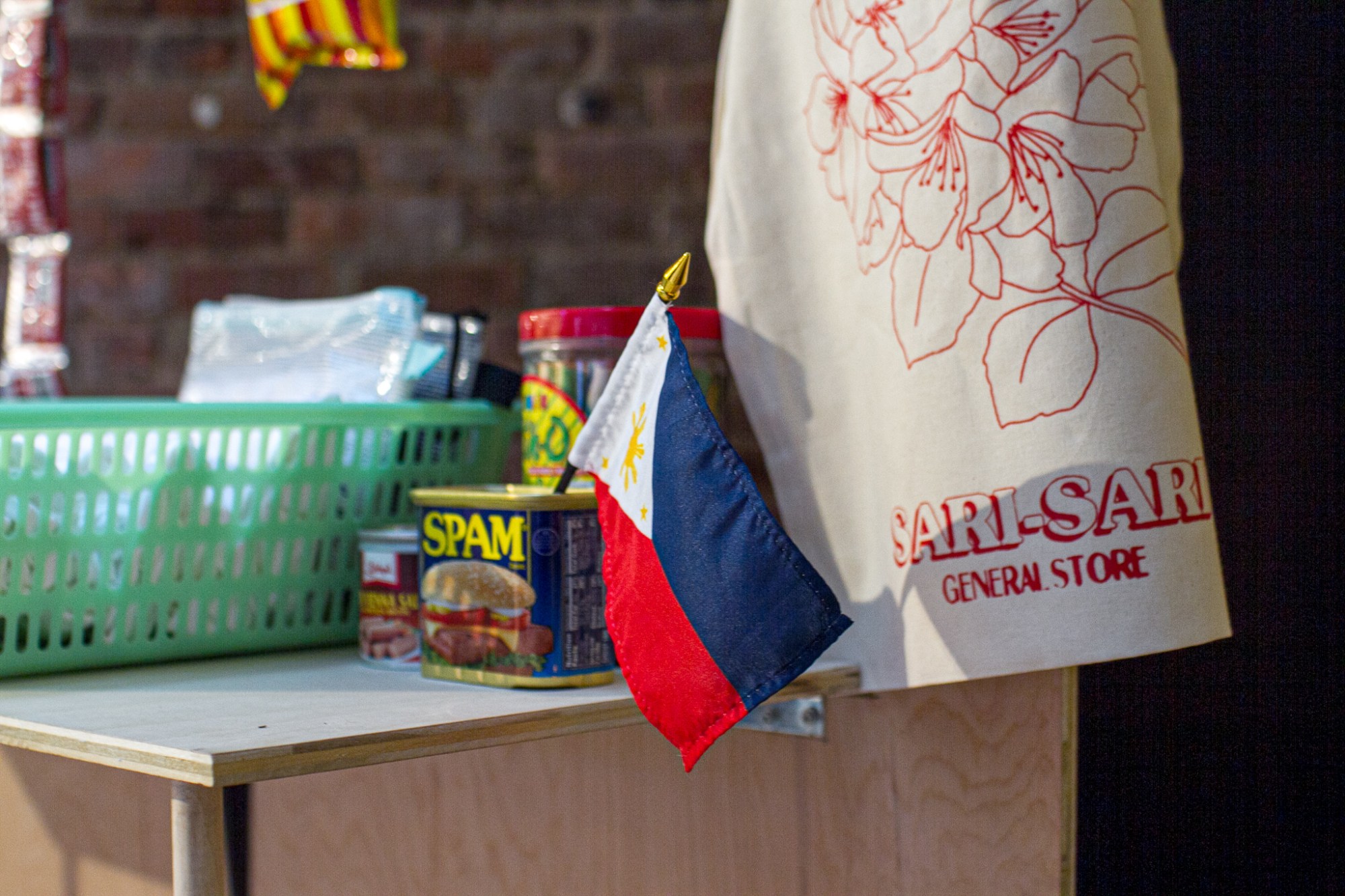
The collective had a little stand modeled after an actual sari-sari storefront, stocked with Filipino snacks, woven fans, a walis-tambo (soft broom), t-shirts by Filipino-American designer Tito Vida, and their own Sari-Sari General Store merch. The showcase also featured art in all different forms, from paintings and photography to ceramics and clothing.
MAAARI, a bicoastal brand that boasts design inspiration from Filipino culture, had ceramics and funeral masks on display. The ceramics were inspired by the indigenous Ilokano people of the rice terrace region in northern Luzon, Philippines, whereas the funeral masks (that also act as burners for incense) were inspired by the indigenous people of Mindanao, who would bury their dead with gold masks in the 15th century.
Tito Vida, the co-founder of BUBBLE_T, and The New York Fox, a DJ and digital producer from Queens, deejayed the event. It’s undeniable that wherever Filipinos are, music brings the community together. “If you ever go to a Filipino gathering, there’s always food, there’s always music, there’s always someone playing the guitar, there’s always karaoke. We always just love to celebrate,” says Tito Vida.
Sari-Sari is taking these traditions that Filipinos are raised with and doing them together as a collective. Almost all of the Filipino-Americans in attendance shared that they never had a community like this growing up. More than just bringing people together, Sari-Sari is instilling a sense of belonging, filling an emotional void that comes from the isolation often experienced in diaspora.
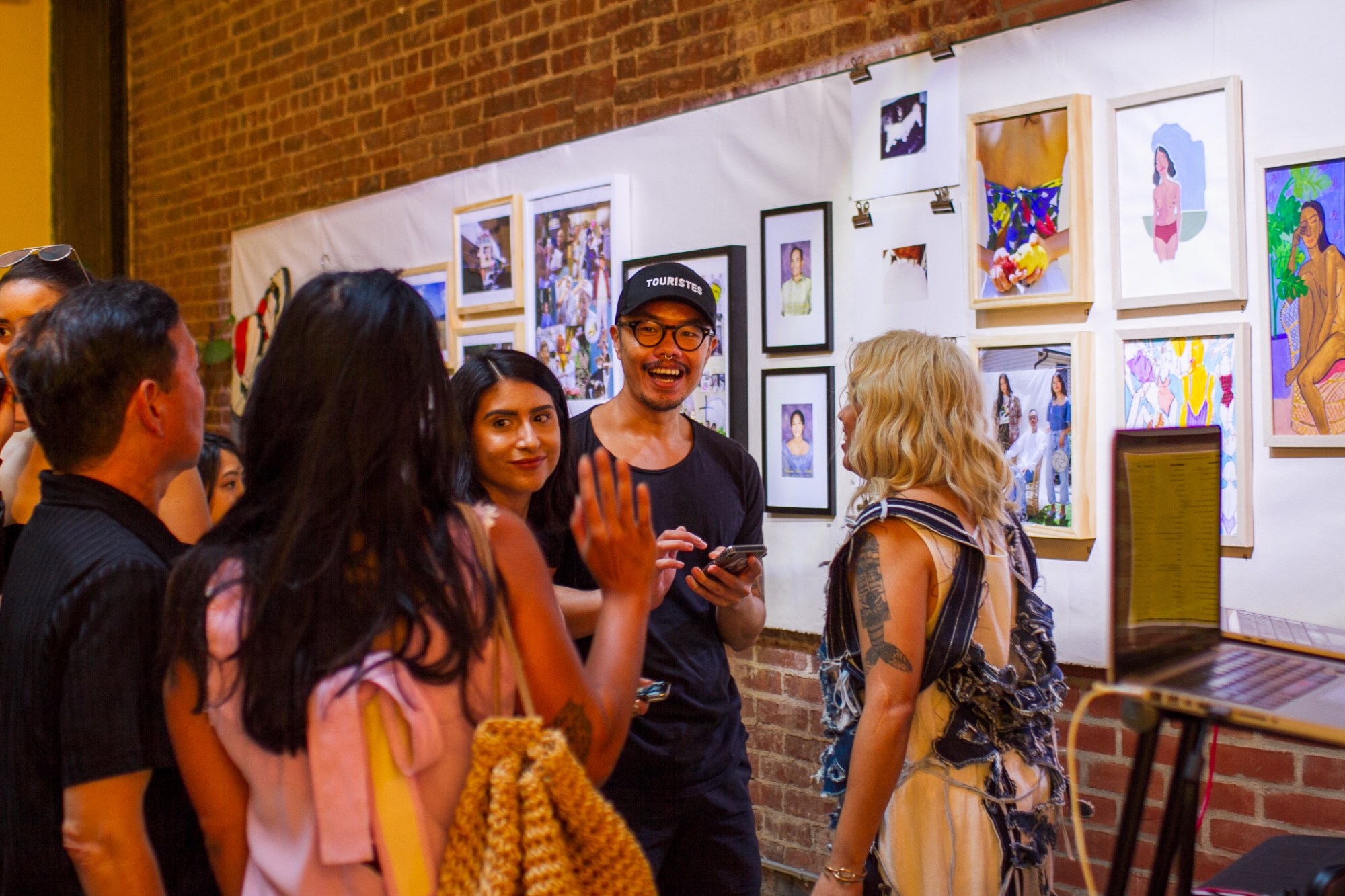
“In the Philippines, I am just very American, but in America I’m Filipino. So having this group, you know, you can share these experiences. These are the only people I can talk to about this, who actually understand what I’m saying, who understand how isolating it is,” Mozo shares.
Where Filipinos have always struggled to answer the question of what it means exactly to be Filipino—especially in New York, where the pervasive feelings are invisibility, being a minority among minorities, always being mistaken for another people—Sari-Sari is becoming the answer: a community-based effort to cultivate pride in all the different iterations of Filipino heritage, culture, resilience, and of course, kapwa.
The New York Fox summed up the energy at KAPWA perfectly. “I fucking love being Filipino. Period.”
